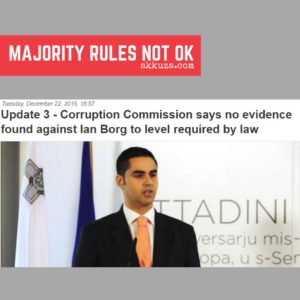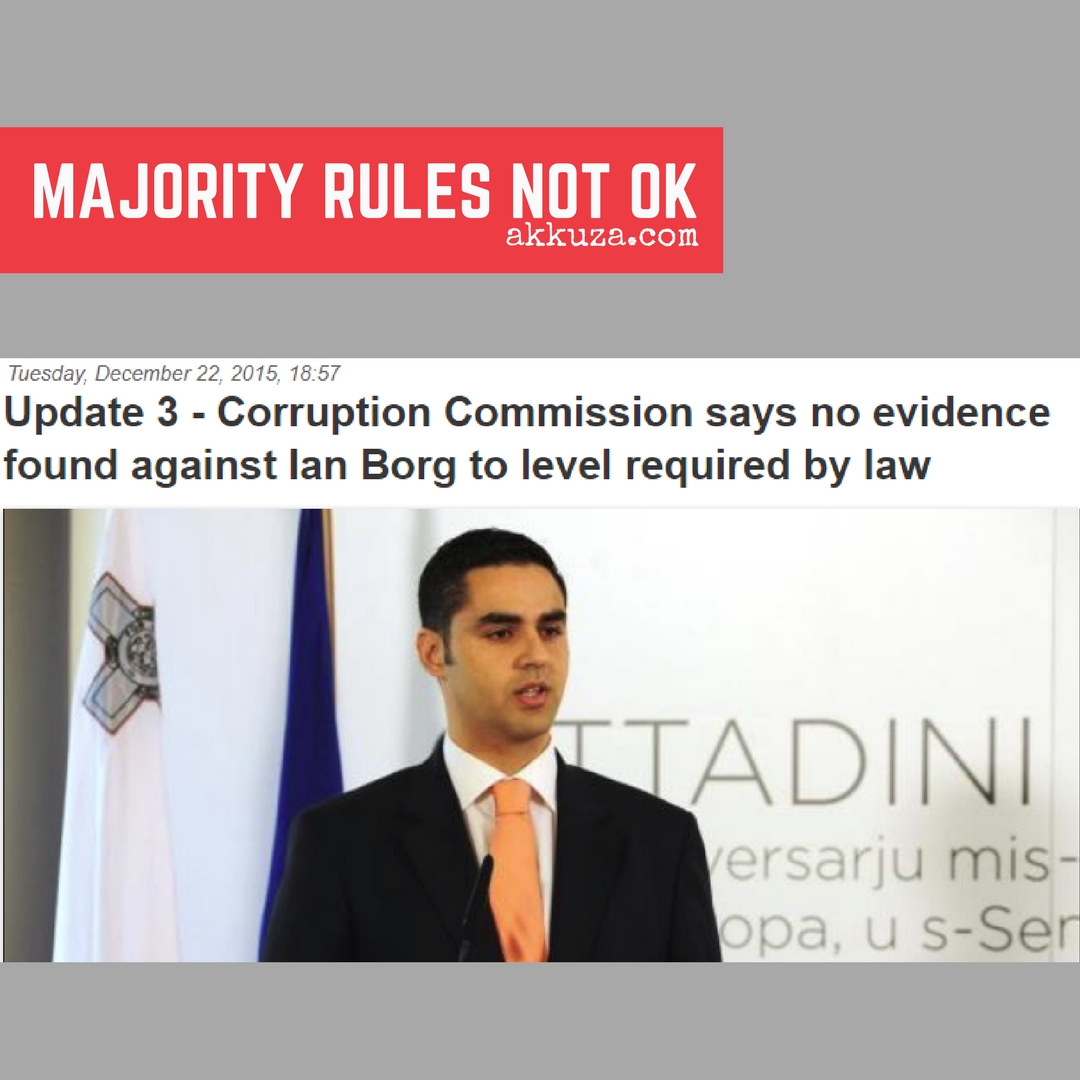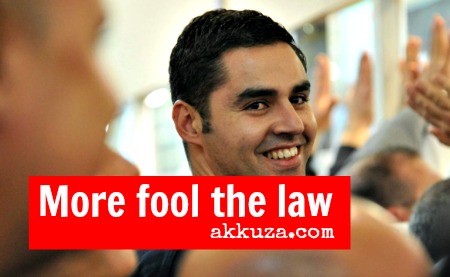
Malta’s Minister for Transport, Infrastructure & Capital Projects has gone on record saying something to the effect that “majority rule is higher than the rule of law”. One cannot stop underlining the dangers that lie behind this kind of statement. To begin with, this is a blatant show of ignorance of the laws that bind us. It flies in the face of hundreds of years of philosophical treatises on social contract, on constitutions, and on the basic principles that underlie our law-based societies.
Rousseau (The Social Contract), Locke (Second Treatise on Government), Hume (Of the Original Contract) and Madison (The Federalist Papers No. 10) – that is a tiny roll call of the kind of people who tried to get their heads around the problem of just representation in society. At the second rally organised by CSN after Daphne’s assassination I had spoken of the people as sovereign – the ultimate depositaries of the powers of the land. That was not a concept I pulled out of thin air. Our legal systems are all intended to crystallise the way that ultimate power (of the people) is lent (and we emphasise lent) to different branches of the state in order that they may govern. To govern in the name of the people, for the people, by the people. Again, not another catchphrase.
Later developments to the philosophers’ ideas came in the form of modern liberal constitutions such as those begotten by the American and French revolutions. A representative government, a separation of powers and a basic set of rights that was above the power of the legislature. From the Magna Carta onwards in fact, there was the gradual realisation that a sovereign people would still subject itself voluntarily to regulation by a set of fundamental truths that would be inalienable (could not be taken away) even by those who have been entrusted with creating laws for the day to day functioning of society.
“We hold these truths to be self-evident…” is how the second paragraph of the American Declaration of Independence begins. The colonies were protesting the abuse of the representative power by their King and in that document they justified their right to “dissolve the political bands which have connected them with another”. Among the first of the self-evident truths was The First Amendment which precluded the lawmakers from enacting laws which abridged freedom of speech, the freedom of press and the freedom of religious belief.
The basic rules would be guaranteed by other branches of the state. Alexander Hamilton outlined this in The Federalist Papers No. 78, when he spoke of the Court being the ultimate interpreter of the meaning of the Constitution. In his words, the Court would stand “between the people and the legislature, to keep the latter within the limits assigned to their authority … A constitution is in fact, and must be regarded by judges as fundamental law.. the Constitution ought to be preferred to the [legislature’s] statute, and the intention of the people to the intention of their agents.”.
Modern constitutions are replete with checks and balances of this sort. The point of the checks and balances is that tyranny is avoided. The point is that the abuse of power by a part over the whole is prevented.
The role of a ‘majority’ in our constitution starts and stops with the election of our representatives in parliament that lead to the selection of a government entrusted with executive power for a short mandate. The next day of an election the concept of ‘majority vote’ is technically redundant except when applied within the rules and regulations of parliamentary votes for the enactment of laws.
Above all, the government of the day as an executive – and every other branch of the state – have no business with using the concept of “majority rule” to trump all other concepts of legal accountability. To do so would be to usurp the very concept of control of power and representation. Ian Borg’s concept of majority rule trumping the rule of law is an abomination to the concept of democratic representation. The same can be said of Alfred Sant’s declarations in the European Parliament where the idea that “the people have voted” seems to have been bandied about as some sort of general absolution for any irregularities committed by the agents of government that was confirmed at the polls.
Whether willfully or through ignorance of the law, these statements become a declaration of war on liberal democracy. They represent a dangerous step in the current situation where the rule of law is withering before our very own eyes.
They must and shall be countered.
The people united can never be defeated.





